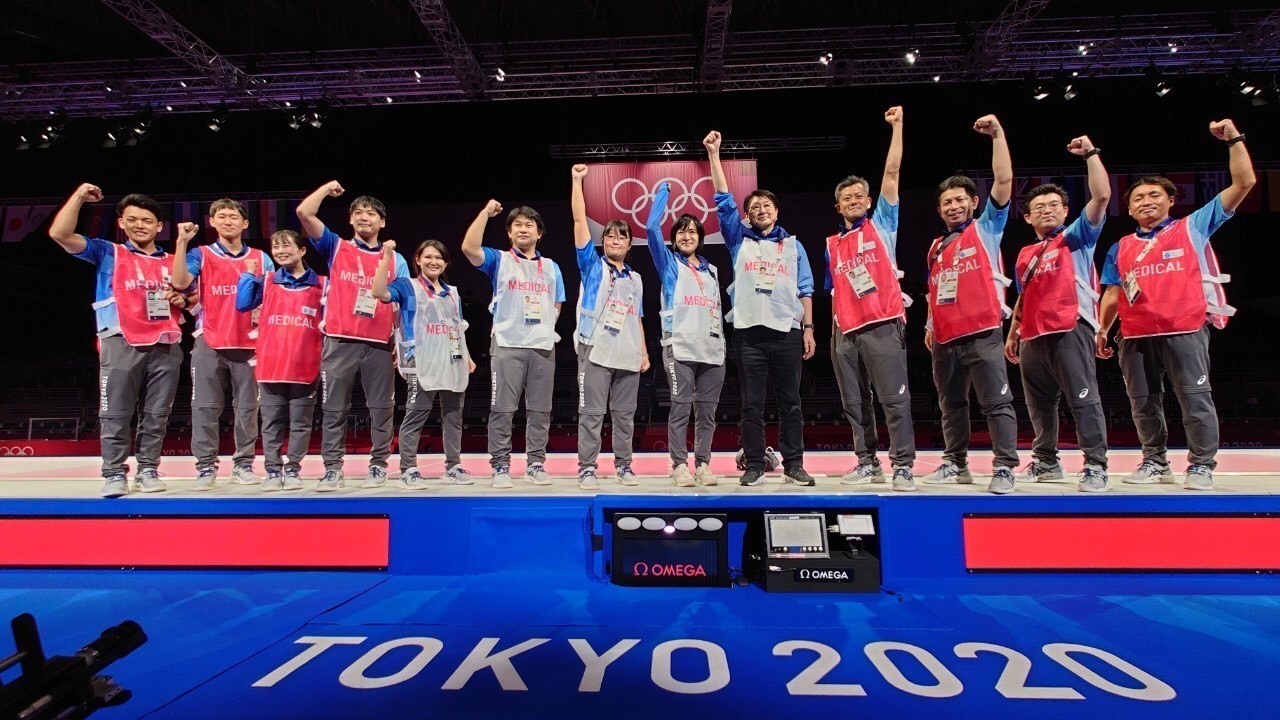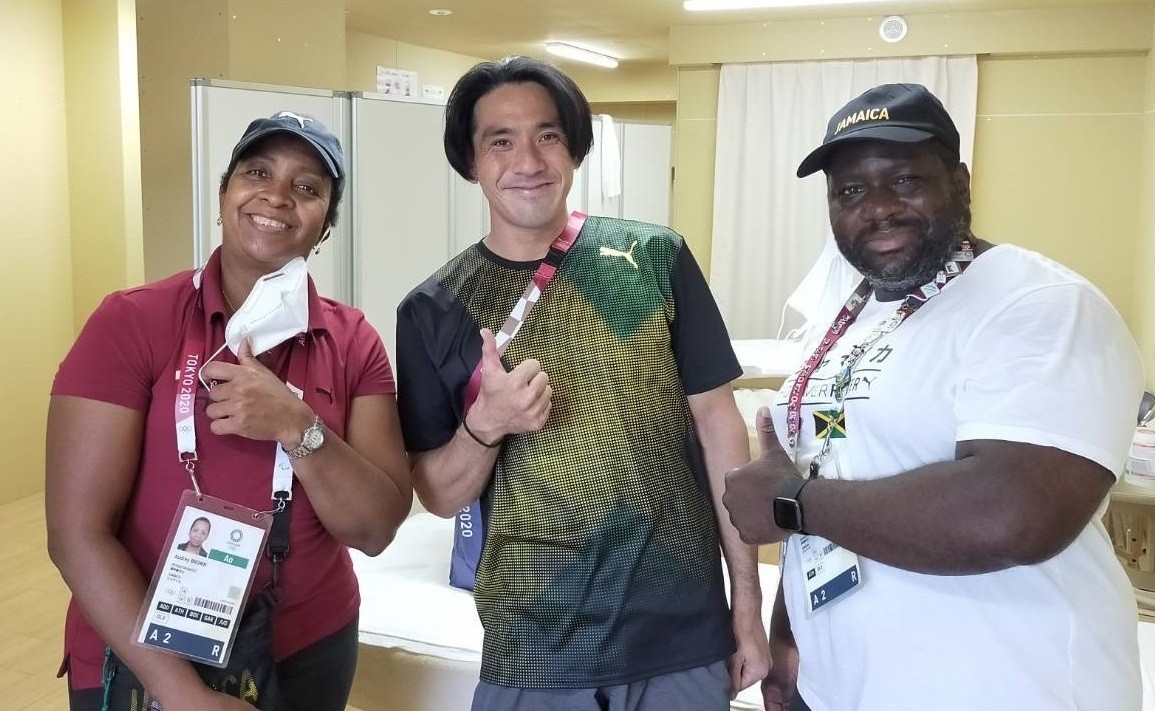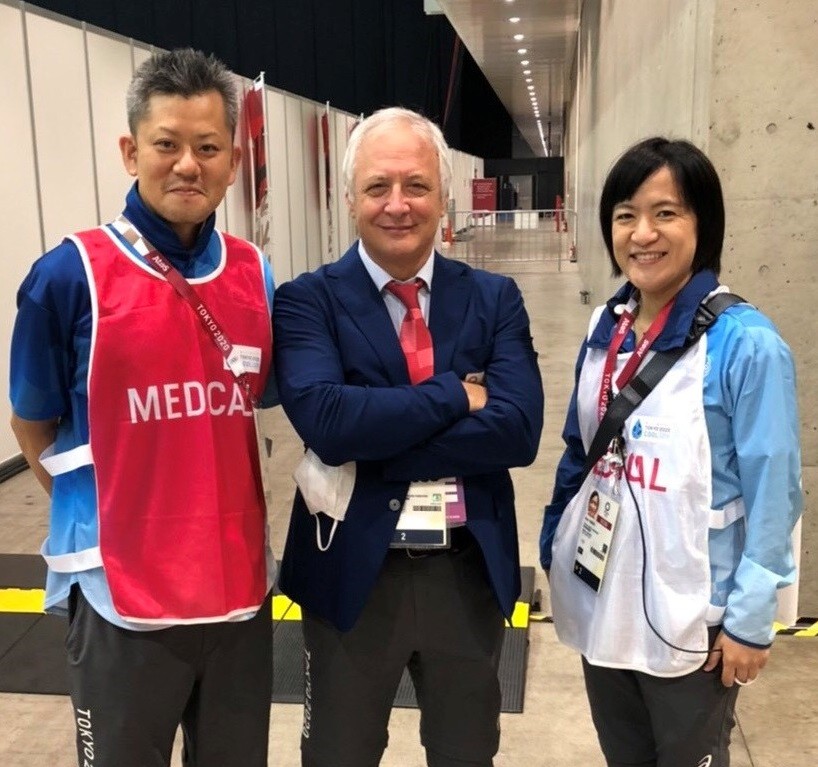Physiotherapists have played a key role at the Tokyo 2020 Olympic Games, and formed the largest single group of healthcare professionals at the Olympic Games, reflecting athletes’ reliance on physiotherapy.
The Olympic physical therapy team comprised 800 physiotherapists, all members of the Japanese Physical Therapy Association (JPTA), and was led by Masaki Katayose and his senior physiotherapy team: Tatsuya Tamaki, Miwako Toyama, and Mina Samukawa.

The protection of the health of an Olympic athlete is a core objective of the International Olympic Committee (IOC) medical and scientific commission. The IOC recognises the involvement of physiotherapists is essential to the success of multidisciplinary sports medicine team and in the care of athletes. The governance of the service planning and operational delivery is overseen by the IOC, under the leadership of IOC medical and scientific commission physiotherapist, Marie-Elaine Grant.
The support of JPTA has been greatly appreciated by Tokyo Olympic Organising Committee (TOCOG) and the IOC. JPTA’s collaboration and assistance with the recruitment and training of their physiotherapy members in preparation for the Tokyo 2020 Olympic Games has been key to the success of the physical therapy service.
Marie-Elaine Grant, IOC medical and scientific commission physiotherapist and member of the Irish Society of Chartered Physiotherapists, said: “Congratulations to Masaki Katayose, lead physical therapist for TOCOG, and his team, who have provided outstanding physical therapy for athletes during the Tokyo Olympic Games. Members of World Physiotherapy can be proud of the excellence with which this team has represented our profession on the world stage during these unprecedented times.
“It has been an honour to collaborate with this team on the planning and preparations over four years before the Games. The professionalism, expertise and skills of the TOCOG physical therapy team has resulted in the highest standards of care in the provision of treatment, recovery, and injury prevention for athletes and will remain a valuable legacy after the Games.”
The Olympic physical therapy team has provided athlete services in the Olympic Polyclinics, situated in the main Olympic Village, the Sailing Village and the Cycling Village. Physiotherapy has been provided at the athlete medical stations and at the warm-up at every competition venue. At several venues, sports massage and sports performance support has been provided by certified sports athletic trainers who work in close collaboration with the physiotherapists.
Since the Olympic Village opened on 13 July, the Olympic physical therapy team has provided services from 7am until 11pm every day. Some physiotherapists have been working with athletes from specific countries/territories.

Masaki Nonoyama, member of Japanese Physical Therapy Association, said: “I am grateful to have the opportunity to support the Jamaica Olympic team as a physical therapist.
“I would like to thank the organisers who held the event for the athletes, even under this hard situation, the coordinators who gave me the opportunity to get involved with the Jamaican team, and all the volunteers.
“I am pleased to have the best experience of my life.”
A critical challenge for the Olympic physical therapy team has been delivering safe care to athletes in a COVID-19 environment. The team has constantly monitored and reviewed clinical practices to ensure the safety of the athletes, and implemented measures to protect athletes and staff. To address the impacts of heat and humidity, the team has provided ice baths and support with cool down strategies, which have been widely accessed by several athletes.

Takayuki Suzuki, member of Japanese Physical Therapy Association, said: “The 2020 Tokyo Olympic Games, in which I participated, as a physical therapist, as a venue director, started with a ‘Wowahah’, screaming from my heart, and ended with a cry of joy ‘Weeee’.
“I am so grateful for the experience of providing physical therapy to athletes from various countries at the Olympic Games.”
Hideyuki Saito, president of the Japanese Physical Therapy Association, said: “Building on the opportunity of the Olympic and Paralympic Games, as JPTA, we would like to make further efforts for creating a society where everyone, from young children to the elderly, can enjoy physical activity and sports; popularizing adapted sports activities that are tailored to the needs of people with disabilities; and spreading the legacy of the Games.”
Members of the TOCOG physical therapy team will also be supporting athletes taking part in the Paralympic Games, 24 August-5 September 2021, in Tokyo.



